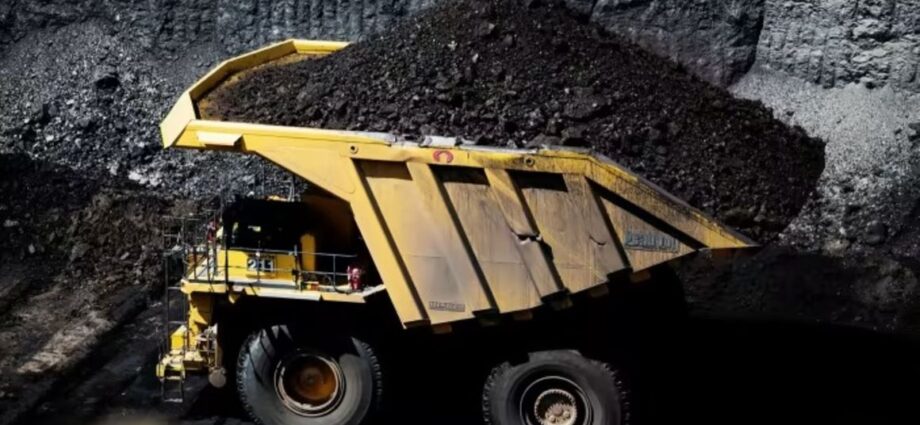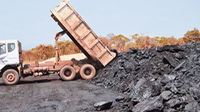By REUTERS
Dar es Salaam. The sleepy Tanzanian port of Mtwara mainly dealt in cashew nuts until late last year. Now it bustles with vessels loading up with coal, as Russia’s invasion of Ukraine drives a worldwide race for the polluting fuel.
Also Read: Mtwara port cargo volume up thanks to high exports of coal
Tanzania traditionally exports thermal coal only to neighbouring countries in East Africa; sending it further afield was out of the question, as it required trucking the material more than 600 kilometres from mines in its southwest to Mtwara, the nearest Indian Ocean port.
Europe’s crippling energy crisis has changed all that.
Prices for thermal coal, used to generate electricity, have leapt to record levels as a result of the war, which has led to many European countries losing access to vital supplies of natural gas and coal from their top provider Russia.
Buyers in Europe and beyond are now vying to pay top dollar for coal from often remote mines in places such as Tanzania, Botswana and even potentially Madagascar.
The resurgent coal demand, driven by governments trying to wean themselves off Russian energy while keeping a lid on power prices, clashes with climate plans to shift away from the most polluting fossil fuel.
“European players, after the Russian war, are going to any place where there is coal,” Mr Rizwan Ahmed, the managing director of coal miner Bluesky Minings said in Dar es Salaam, Tanzania. “They are offering to pay very good prices.”
Commodities trader Cargill has seen a marked rise in coal shipments into Europe in recent months, said Jan Dieleman, president of Cargill’s ocean transportation division, with the company transporting 9 million tonnes of coal globally in the June-August period compared with 7 million a year earlier.
“Europe is competing with other buyers and the alternative is more expensive, which is gas,” said Dieleman. “Europe should be able to source coal and we will see very strong flows into Europe from Colombia, South Africa and even further away.”
Even though the window of opportunity may be short should the geopolitical winds shift, some countries with coal resources see the margins to be gained as too good a chance to miss.
Front-month physical thermal coal at Australia’s Newcastle port – a global benchmark – was trading at $429 a tonne on September 16, just below an all-time high of $483.50 in March and up from around $176/tonne this time last year.
Mtwara has seen 13 vessels load up with coal since November last year when it launched its first-ever coal shipment, according to a port official; the latest, the MV Miss Simona, a bulk carrier with 34,529-tonne capacity, docked last week, loaded up and sailed off to France. Since the end of June, 57 cargo orders — requests for available vessels — to ship Tanzanian coal have been seen on the spot freight market compared with just two in the same period last year, according to analysis from maritime and commodities data platform Shipfix.
Global seaborne thermal coal imports reached 97.8 million tonnes in July, the highest level on record and up more than 9 percent year-on-year, an analysis from ship broker Braemar shows.
The volume dropped to 89 million tonnes in August, largely due to export disruptions from major producer Australia.
Also Read: Should Tanzania make own way on coal?
A last hurrah for coal?
Tanzania expects coal exports to double this year to around 696,773 tonnes, the country’s Mining Commission told Reuters, while production is expected to increase by 50 percent to about 1,364,707 tonnes.
Targeting sizeable tax revenues from this jump in exports, the government is considering building a railway that would link the coal-producing Ruvuma Region to Mtwara, said Yahya Semamba, acting executive secretary of the Mining Commission, a government body.
Tanzania-based miner Ruvuma Coal has already exported at least 400,000 tonnes of coal via a trader to countries including the Netherlands, France and India since November, according to trade data reviewed by Reuters.
Ruvuma Coal declined to comment for this story.
Also Read: The downside of coal mining for villagers in Ruvuma
Coal miners are enjoying unprecedented profit margins in what some see as a last hurrah for an industry facing intense pressure to cut production; with coal at $75 a tonne in late 2020, a coal mine might earn a cash margin of $15/tonne, said Rob West, analyst at consultancy Thunder Said Energy. But as prices hit $400/tonne, the cash margin increased to $235/tonne.
Indeed traders in Europe are willing to pay twice the price quoted by Asian buyers, according to some mine executives such as Bluesky’s Ahmed, who said his company didn’t currently export through Mtwara, but planned to do so, and had received requests from buyers in Germany, Poland and Britain.
Similarly, in landlocked Botswana, selling coal on the seaborne market used to be unthinkable, with most exports going to neighbouring South Africa, Namibia and Zimbabwe.
“Earlier, the logistics would kill us. However, at current prices, we can make this thing work,” said Mr Morné du Plessis, the CEO of Botswana-based coal miner Minergy (MIN.BT).
Also Read: Dangote Cement gets plot for coal mining
Minergy has exported two shipments of around 30,000 tonnes each from Namibia’s Walvis Bay port, and sent two trains of coal to be exported from Mozambique’s Maputo port.
The island nation of Madagascar, the world’s top exporter of vanilla, could become another newbie on the global coal scene.
“The current prices comfortably support a business case for coal miners in Madagascar to start exporting coal for the first time in the country’s history,” said Prince Nyati, CEO of one of -the companies developing a coal project in the country.
However, new entrants will have to ready themselves to pull back or even cease production if the market conditions become unfavourable, Nyati added.
‘Coal has been embraced’
High demand and tight supplies of coal have redrawn trade routes, driving up global “deadweight tonne days” for the fossil fuel to record heights in July, according to Braemar research, referring to a measure of shipping levels in terms of fleet usage and the length of voyages.
Thermal coal imports by the European Union from Australia, South Africa and Indonesia – which have traditionally supplied Asian markets – rose more than 11-fold in the four months after Russia invaded Ukraine, data from Indian consultancy Coalmint showed.
The invasion has forced EU nations to move to cut reliance on gas from Russia, which has reduced its vast supplies to the region. The bloc’s ban on Russian coal imports has further increased pressure on electricity generators to find alternative sources of the fuel.
Russia usually provides about 70 percent of the EU’s thermal coal, according to the Brussels-based think-tank Bruegel, while it typically supplies 40 percent of the bloc’s natural gas.
European countries have temporarily set aside environmental goals as they seek to stockpile the fuel and reopen mothballed coal plants to prepare for what could be a difficult winter.
“Strong incentives have pushed coal and lignite generation 25 percent above year-ago levels, despite a whole host of plant closures over the past three years,” analysts at Bank of America said about Europe.
The current ramp-up in thermal coal combustion could put countries on a collision course with ambitious CO2 emissions reduction goals; in the EU, burning more coal will increase CO2 emissions by 1.3 percent a year if Russian gas supplies are completely halted, according to energy think-tank Ember.
Governments in Europe say this is a temporary change, although that could depend on how long the energy crisis drags on.
Germany is delaying planned shutdowns of some coal plants in order to ensure security of power supply.
Minergy, the Botswana coal miner, sees the coal market remaining strong until at least mid-2023, if not longer. It hopes to double its production capacity.
“The negative narrative surrounding coal has been abandoned, and coal has been embraced as the go-to energy source in the energy crises arising from the war,” the company said. (Reuters)
Related
Share this news
This Years Most Read News Stories

Tanzania’s path to 4Rs: The President Samia’s era
Tanzania has embarked on a journey of resilience, rebuilding, reconciliation, and reform under the leadership of President Samia Suluhu Hassan.Continue Reading

Tanzania: Samia Hands Over NBC’s 354m/ – Crop Insurance Compensation to Farmers Affected By Hailstorms
President Samia Suluhu Hassan, has handed over a cheque of 354m/- from the National Bank of Commerce (NBC) as compensation to tobacco farmers, who were affected by hailstorms during the previous farming season in various regions across the country.
Handing over the cheque in Dodoma, the compensation is part of the crop insurance service provided by NBC in collaboration with the National Insurance Corporation (NIC).
Furthermore, President Samia has also handed over health insurance coverage to members of the Lindi Mwambao Cooperative Union based in Lindi Region, through the Farmers’ Health Insurance service provided by the bank in partnership with Assurance Insurance Company.
While visiting the bank’s pavilion at the Nanenane Agricultural Exhibition and being received and briefed by the bank’s Managing Director, Mr. Theobald Sabi, she said: “This crop insurance is one of the crucial solutions in ensuring farmers have a reliable income, without fear of challenges such as natural disasters, including hailstorms.
“I call upon all farmers in the country to make the best use of this important opportunity by accessing these kinds of insurance services. I also highly commend NBC and all the stakeholders participating in this programme.”
Elaborating further on the crop insurance service, the Minister of Agriculture, Hussein Bashe, stated that it will help to recover the loss farmers incurred, especially in various calamities beyond their control.
Citing them as floods, fires, and hailstorms, which have significantly affected the well-being of farmers and caused some to be reluctant to invest in the crucial sector, Mr Bashe added: “However, our President, this step by NBC is just the beginning, as this is the second year since they started offering this service, and the results are already visible.

Sign up for free AllAfrica Newsletters
Get the latest in African news delivered straight to your inbox
“As the government, we promise to continue supporting the wider implementation of this service, with the goal of ensuring that this crop insurance service reaches more farmers.”
ALSO READ: NBC participates in TFF 2023/24 awards, promises to enhance competition
On his part, Mr Sabi said that the farmers who benefited from the compensations are from 23 primary cooperative unions in the regions of Shinyanga, Geita, Tabora, Mbeya, Katavi, and Kigoma.
He added: “In addition to these insurance services, as a bank, through this exhibition, we have continued with our programme of providing financial education and various banking opportunities to farmers, alongside offering them various loans, including loans for agricultural equipment, particularly tractors, to eligible farmers.:
At the NBC booth, President Samia also had the opportunity to be briefed on the various services offered by the bank to the farmers namely crop insurance and health insurance services.
There, the President had the chance to speak with some of the beneficiaries of the services, including the Vice-Chairman of the Lindi Mwambao Primary Cooperative Union, Mr. Hassan Mnumbe, whose union has been provided with a health insurance card from the bank.
Source: allafrica.com

Tanzania’s opposition party ACT Wazalendo honours veteran politician under new policy
Unguja. Opposition party ACT Wazalendo today officially bids farewell to its former Chairman, Juma Duni Haji, also known as Babu Duni, as part of a new policy designed to honor retired senior leaders at a ceremony held at Kiembesamaki, Zanzibar.
The initiative highlights the party’s commitment to recognizing and supporting individuals who have served with dedication and integrity.
Babu Duni, who stepped down earlier this year, was succeeded by Othman Masoud, now the First Vice President of Zanzibar.
The policy aims to provide ongoing respect and support to retired leaders, ensuring their continued recognition and contribution to the party’s development.
“Recognizing their significant contributions to the development and prosperity of the party, this policy ensures that retired leaders continue to be acknowledged and respected by both the party and the community,” the policy states.
To benefit from this policy, leaders must not have left or been expelled from the party. They must have served the party with honor and dedication. The national leadership committee will determine whether a leader has fulfilled these criteria.
The policy seeks to honor retired leaders, protect their dignity, acknowledge their contributions, leverage their ideas for the party’s growth, and support them to the best of the party’s ability.
In honoring these leaders, the party will provide a vehicle, the type of which will be determined by the national leadership committee. Additionally, they will receive a monthly allowance, with the amount also set by this committee.
Other benefits include health insurance. If a leader does not own a home, the party will cover their rent at a rate decided by the committee.
The leadership committee may also grant special recognition based on the leader’s contributions. Retired leaders will participate in decision-making meetings according to procedures outlined in the party’s constitution.
Depending on the party’s resources at the time, the policy may also apply to retired deputy chairpersons for both the mainland and Zanzibar, the Secretary-General, Deputy Secretary-General for both mainland and Zanzibar, and the party’s Attorney General.
Additionally, leaders, executives, or members with exceptional contributions to the party’s protection, advocacy, and defense may also benefit, as determined by the leadership committee.
Currently, those who are eligible for benefits under this policy include Juma Duni Haji (retired party Chairman) and Zitto Kabwe (retired party leader).Continue Reading












